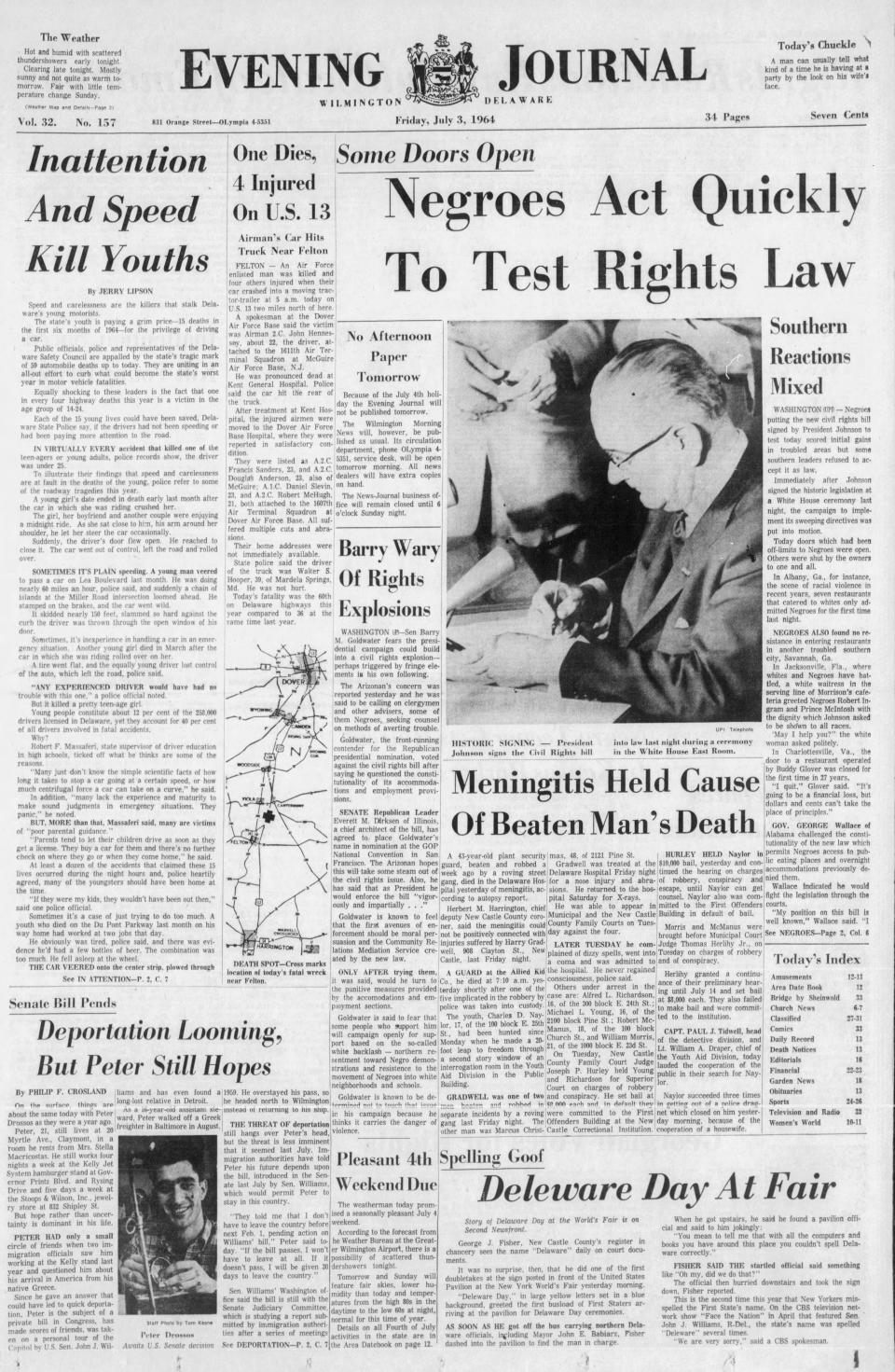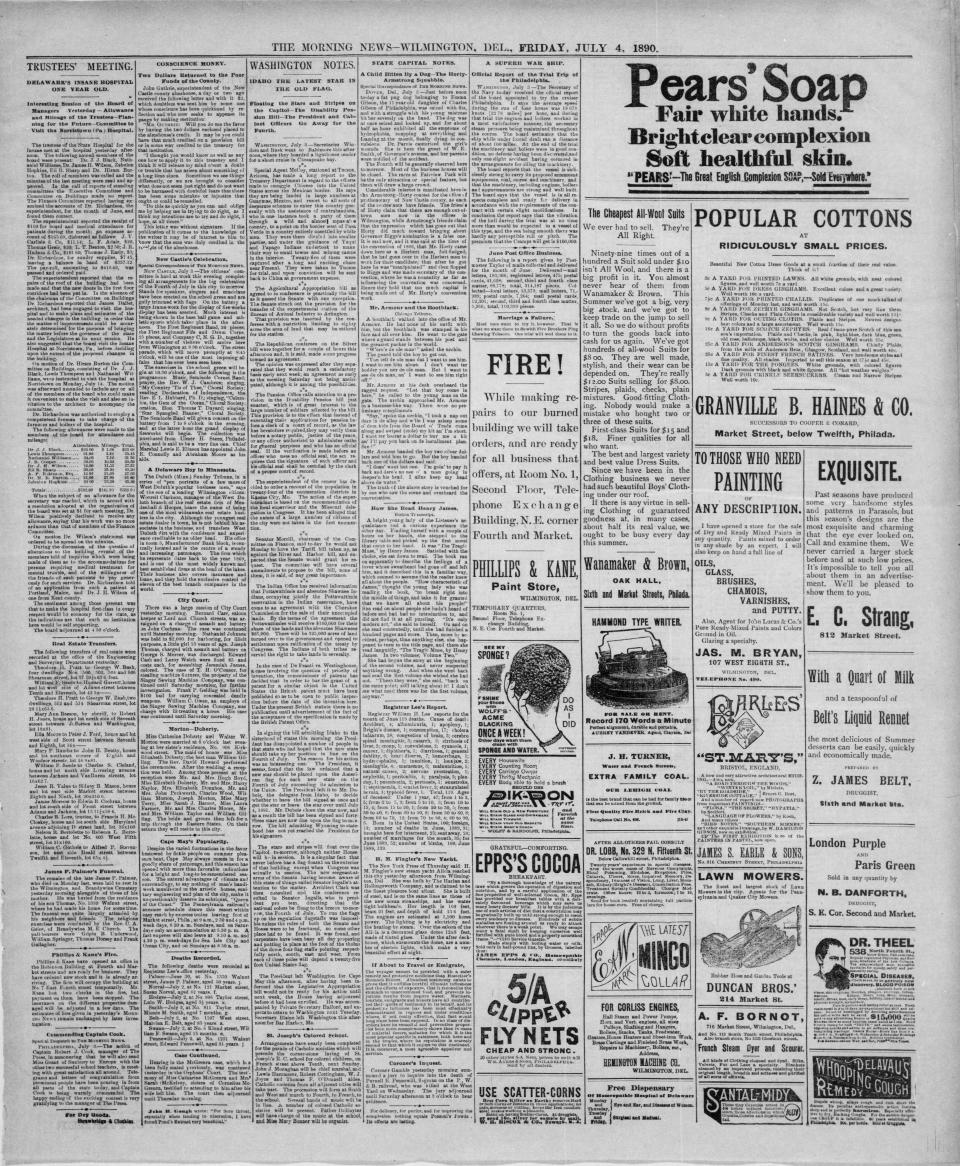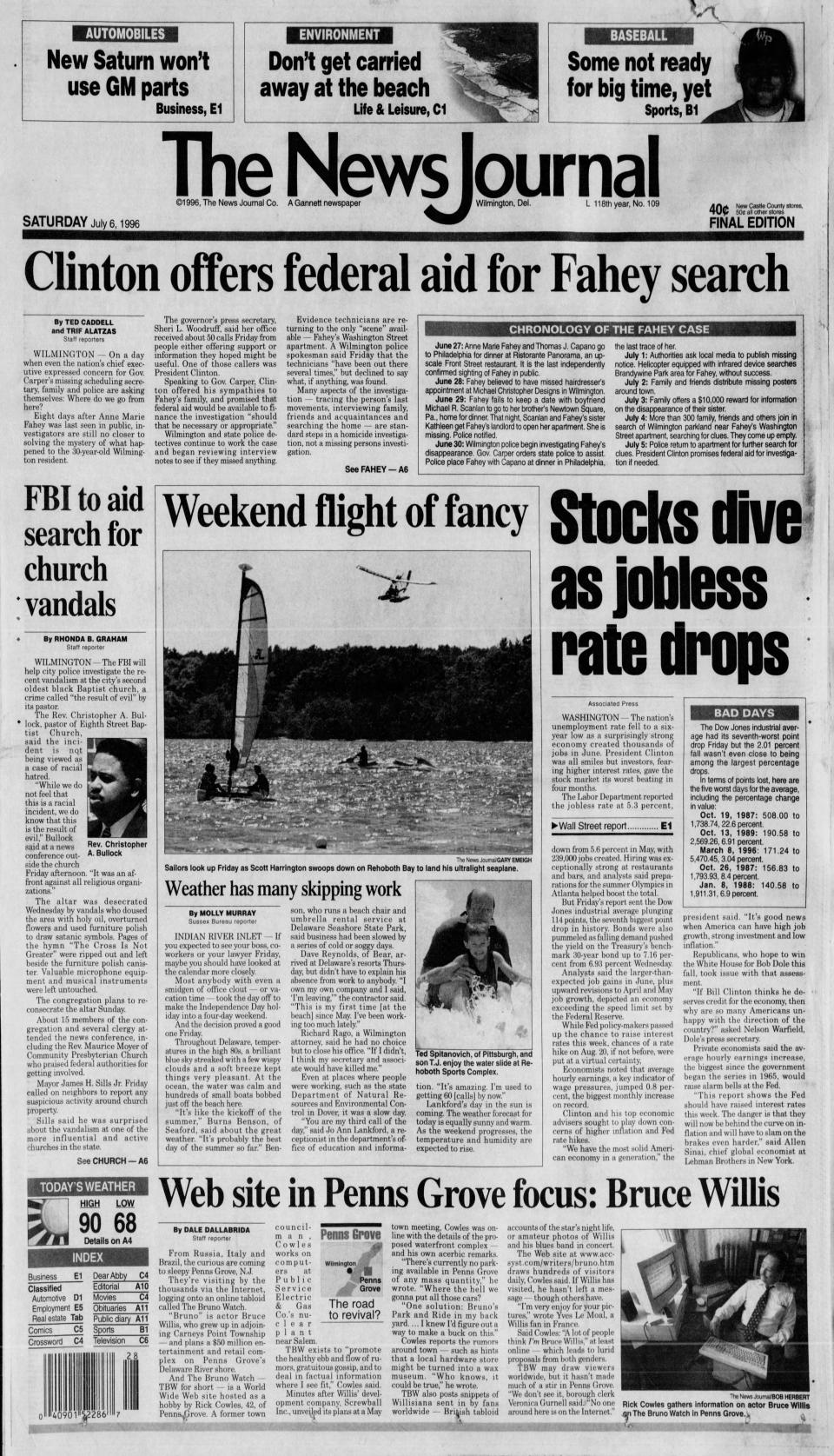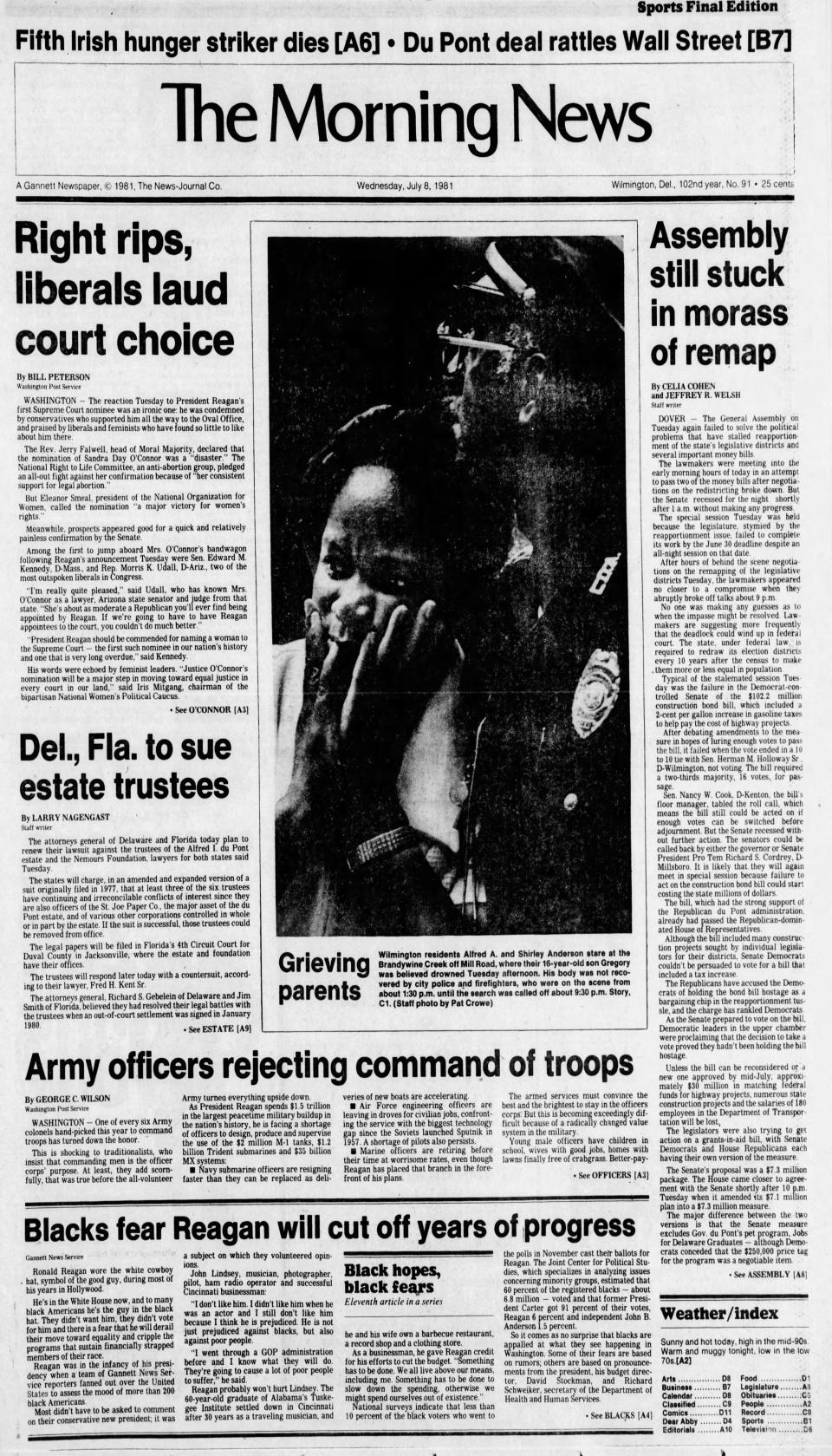Pages of history: From The News Journal archives, week of July 3
- Oops!Something went wrong.Please try again later.
- Oops!Something went wrong.Please try again later.
"Pages of history" features excerpts from The News Journal archives including the Wilmington Morning News and the Evening Journal.
July 3, 1964, Evening Journal
Black residents act quickly to test rights law; Southern reaction mixed
Black residents putting the new civil rights bill signed by President Johnson to the test today scored initial gains in troubled areas, but some southern leaders refused to accept it as law.
Immediately after Johnson signed the historic legislation at a White House ceremony last night, the campaign to implement its sweeping directives was put into motion.

Today doors which had been off-limits to Black residents were open. Others were shut by the owners to one and all.
In Albany, Ga., for instance, the scene of racial violence in recent years, seven restaurants that catered to whites only admitted Black residents for the first time last night.
Blacks residents also found no resistance in entering restaurants in another troubled southern city, Savannah, Ga.
In Jacksonville, Fla., where whites and blacks have battled, a white waitress in the serving line of Morrison’s cafeteria greeted black residents Robert Ingram and Prince McIntosh with the dignity which Johnson asked to be shown to all races.
“May I help you?” the white woman asked politely.
In Charlottesville, Va., the door to a restaurant operated by Buddy Glover was closed for the first time in 27 years.
“I quit,” Glover said. “It’s going to be a financial loss, but dollars and cents can’t take the place of principles.”
Gov. George Wallace of Alabama challenged the constitutionality of the new law which permits Black residents access to public eating places and overnight accommodations previously denied them….
MORE ON RECENT RIGHTS RULING: 'Crying all day': Delawareans mournful, enraged at Supreme Court's Roe v. Wade decision
July 4, 1890, The Morning News
Idaho becomes newest state, too early for some
In signing the bill admitting Idaho to the sisterhood of states July 3, President Harrison has disappointed a number of people in that state who had hoped that the new state should take up her position in line on the Fourth of July.
The reason for his action was an interesting one. The President, it seems, found the law ordained that a new star should be placed upon the American flag for each new state on the Fourth of July succeeding its admission to the Union.

The President left it to Mr. Dubois, the delegate from Idaho, to decide whether to have the bill signed at once and get the star this year, or leave the star over until July 4, 1891. Mr. Dubois chose the star now, and as a result, the bill has been signed and 43 stars are now due upon the flag July 4.
The bill admitting Wyoming to statehood has not yet reached the President for his signature.
July 6, 1996, The News Journal
Clinton offers federal aid in search for missing Wilmington woman
On a day when even the nation’s chief executive expressed concern for Gov. Carper’s missing scheduling secretary, family and police are asking themselves: Where do we go from here?
Eight days after Anne Marie Fahey was last seen in public, investigators are still no closer to solving the mystery of what happened to the 30-year-old Wilmington resident.

The governor’s press secretary, Sheri L. Woodruff, said her office received about 50 calls Friday from people either offering support or information they hoped might be useful. One of those callers was President Clinton.
Speaking to Gov. Carper, Clinton offered his sympathies to Fahey’s family, and promised that federal aid would be available to finance the investigation “should that be necessary or appropriate.”
…Fahey was last seen June 27 at an upscale Philadelphia restaurant with Wilmington attorney and political insider Thomas J. Capano. Capano told police he dropped her off at her Washington Street apartment about 10 p.m. A downstairs neighbor said she heard footsteps about the same time.
Fahey was reported missing last Saturday after she didn’t show up for a date with her boyfriend, MBNA community affairs director Michael R. Scanlan. The only thing missing from her apartment were the keys to her apartment and the keys to her Volkswagen Jetta, which remained parked out front….
CATCH UP ON HISTORY: Pages of history: From The News Journal archives, week of April 24
July 8, 1981, The Morning News
First woman nominated for Supreme Court
The reaction Tuesday to President Reagan’s first Supreme Court nominee was an ironic one: he was condemned by conservatives who supported him all the way to the Oval Office, and praised by liberals and feminists who have found so little to like about him there.

The Rev. Jerry Falwell, head of Moral Majority, declared that the nomination of Sandra Day O’Connor was a “disaster.” The National Right to Life Committee, an anti-abortion group, pledged an all-out fight against her confirmation because of “her consistent support for legal abortion.”
But Eleanor Smeal, president of the National Organization for Women, called the nomination “a major victory for women’s rights.”
Meanwhile, prospects appeared good for a quick and relatively painless confirmation by the Senate. Among the first to jump aboard Mrs. O’Connor’s bandwagon following Reagan’s announcement Tuesday were Sen. Edward M. Kennedy, D-Mass., and Rep. Morris K. Udall, D-Ariz., two of the most outspoken liberals in Congress….
Reach reporter Ben Mace at rmace@gannett.com.
This article originally appeared on Delaware News Journal: News Journal archives Civil Rights bill, first woman Supreme Court

